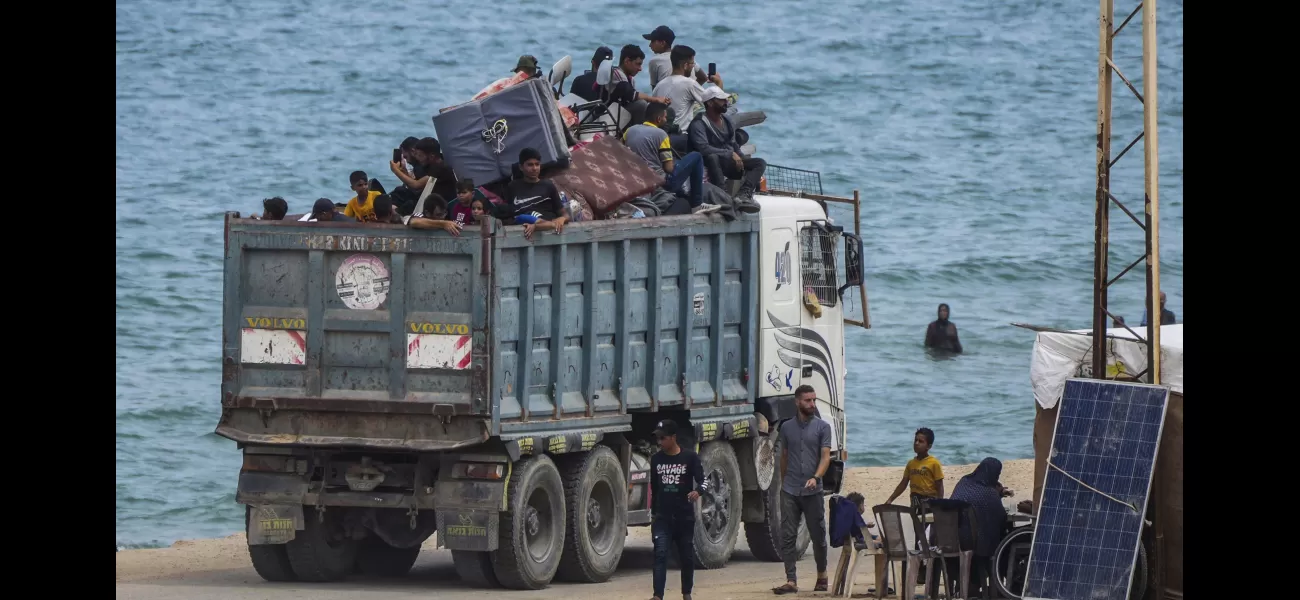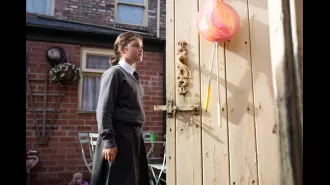Israel is advancing in Rafah while Hamas regroups in other areas.
Israeli forces continue to fight Palestinian militants in Gaza, including in previously cleared areas where Hamas has taken advantage of a security gap to regroup.
May 12th 2024.

On Sunday, Israeli forces were engaged in intense clashes with Palestinian militants all over the Gaza Strip. The military reported that they were fighting in areas of the northern region that had been declared clear months ago, but where Hamas has taken advantage of the security vacuum to regroup.
The Israeli government has been painting the southern city of Rafah as the last stronghold of Hamas, stating that an invasion is necessary in order to achieve their goal of dismantling the group and freeing the many hostages they hold. What was initially a limited operation has now expanded, forcing around 300,000 people to flee their homes.
However, even as the focus remains on Rafah, Hamas seems to have found other areas in the war-torn territory to continue their activities. Israel has yet to present a detailed plan for the governance of Gaza after the conflict, only stating that they will maintain control over the region, which is home to over 2 million Palestinians.
Prime Minister Benjamin Netanyahu has rejected the postwar proposal put forward by the United States, which suggested allowing the Palestinian Authority to govern Gaza with support from Arab and Muslim countries. This proposal is dependent on progress towards the creation of a Palestinian state, something that Netanyahu's government strongly opposes.
With no agreement in sight between these two allies, Gaza has been left without a functioning government, leading to a breakdown in public order. This has provided Hamas with the opportunity to rebuild their presence even in the areas hardest hit by the war.
According to reports, there was heavy bombardment by Israeli forces overnight in the Jabaliya refugee camp and other areas in the northern Gaza Strip, which has already suffered widespread destruction and has been cut off by Israeli forces for months. UN officials have stated that there is a dire shortage of food in the region.
Residents in the area stated that they could hear intense bombing throughout the night, causing great fear and distress. Abdel-Kareem Radwan, a 48-year-old Palestinian from Jabaliya, described the situation as "madness."
Palestinian Civil Defense first responders were unable to reach the affected areas due to the ongoing violence. Israeli troops have been engaged in battles with militants in Rafah, a city on the southern edge of Gaza, since last week, when they seized control of the border crossing with Egypt.
The top Israeli military spokesperson, Rear Adm. Daniel Hagari, stated that their forces were fighting in all parts of Gaza, including areas they had not previously operated in. He mentioned Jabaliya and Zeitoun, as well as Beit Lahiya and Beit Hanoun, towns near Gaza's northern border with Israel that were heavily bombed in the early days of the war.
As columnist Ben Caspit highlighted in Israel's Maariv daily, the frustration among many Israelis continues to grow over the lack of progress in toppling Hamas' regime. He compared the situation to the American wars in Iraq and Afghanistan, stating that the only people who can govern Gaza after the war are Gazans themselves, with support from outside.
On Friday, five Israeli soldiers were killed in Zeitoun, and Palestinian militants fired a barrage of rockets towards the Israeli city of Beersheba. Overnight, another rocket hit a home in Ashkelon, causing damage. The United Nations' agency for Palestinian refugees reported that over 300,000 people have fled Rafah since the beginning of the operation there, with most seeking refuge in the nearby city of Khan Younis or the crowded tent camp of Mawasi, where conditions are already dire.
Rafah, which was home to around 1.3 million Palestinians before the Israeli operation began, has now been evacuated of all civilians. Hagari reported that dozens of militants had been killed in the area, but the United Nations has warned that a full-scale invasion of Rafah could have catastrophic consequences for civilians and humanitarian efforts.
Rafah is located near the main entry points for aid, which have already been affected by the intense fighting. The Israeli forces have taken control of the Gaza side of the Rafah crossing, forcing it to shut down. Egypt has refused to coordinate with Israel on the delivery of aid through the crossing, citing the "unacceptable Israeli escalation."
US President Joe Biden has stated that he will not provide offensive weapons to Israel for use in Rafah. Furthermore, his administration released a statement stating that there was "reasonable" evidence that Israel had violated international law protecting civilians, a strong statement from Washington on the matter.
Israel, however, denies these allegations, claiming that they take great care to avoid harm to civilians. They place the blame for the high death toll on Hamas, who they say fight from heavily populated areas.
The conflict began in October when Hamas and other militants launched an attack on southern Israel, causing the deaths of around 1,200 people, mostly civilians, and taking hundreds more hostage. Israel's offensive, which has been carried out by air, land, and sea, has resulted in the deaths of over 34,800 Palestinians, the majority of whom are women and children, according to Gaza's Health Ministry. Israel claims to have killed over 13,000 militants but has not provided evidence to support this claim.
The Israeli government has been painting the southern city of Rafah as the last stronghold of Hamas, stating that an invasion is necessary in order to achieve their goal of dismantling the group and freeing the many hostages they hold. What was initially a limited operation has now expanded, forcing around 300,000 people to flee their homes.
However, even as the focus remains on Rafah, Hamas seems to have found other areas in the war-torn territory to continue their activities. Israel has yet to present a detailed plan for the governance of Gaza after the conflict, only stating that they will maintain control over the region, which is home to over 2 million Palestinians.
Prime Minister Benjamin Netanyahu has rejected the postwar proposal put forward by the United States, which suggested allowing the Palestinian Authority to govern Gaza with support from Arab and Muslim countries. This proposal is dependent on progress towards the creation of a Palestinian state, something that Netanyahu's government strongly opposes.
With no agreement in sight between these two allies, Gaza has been left without a functioning government, leading to a breakdown in public order. This has provided Hamas with the opportunity to rebuild their presence even in the areas hardest hit by the war.
According to reports, there was heavy bombardment by Israeli forces overnight in the Jabaliya refugee camp and other areas in the northern Gaza Strip, which has already suffered widespread destruction and has been cut off by Israeli forces for months. UN officials have stated that there is a dire shortage of food in the region.
Residents in the area stated that they could hear intense bombing throughout the night, causing great fear and distress. Abdel-Kareem Radwan, a 48-year-old Palestinian from Jabaliya, described the situation as "madness."
Palestinian Civil Defense first responders were unable to reach the affected areas due to the ongoing violence. Israeli troops have been engaged in battles with militants in Rafah, a city on the southern edge of Gaza, since last week, when they seized control of the border crossing with Egypt.
The top Israeli military spokesperson, Rear Adm. Daniel Hagari, stated that their forces were fighting in all parts of Gaza, including areas they had not previously operated in. He mentioned Jabaliya and Zeitoun, as well as Beit Lahiya and Beit Hanoun, towns near Gaza's northern border with Israel that were heavily bombed in the early days of the war.
As columnist Ben Caspit highlighted in Israel's Maariv daily, the frustration among many Israelis continues to grow over the lack of progress in toppling Hamas' regime. He compared the situation to the American wars in Iraq and Afghanistan, stating that the only people who can govern Gaza after the war are Gazans themselves, with support from outside.
On Friday, five Israeli soldiers were killed in Zeitoun, and Palestinian militants fired a barrage of rockets towards the Israeli city of Beersheba. Overnight, another rocket hit a home in Ashkelon, causing damage. The United Nations' agency for Palestinian refugees reported that over 300,000 people have fled Rafah since the beginning of the operation there, with most seeking refuge in the nearby city of Khan Younis or the crowded tent camp of Mawasi, where conditions are already dire.
Rafah, which was home to around 1.3 million Palestinians before the Israeli operation began, has now been evacuated of all civilians. Hagari reported that dozens of militants had been killed in the area, but the United Nations has warned that a full-scale invasion of Rafah could have catastrophic consequences for civilians and humanitarian efforts.
Rafah is located near the main entry points for aid, which have already been affected by the intense fighting. The Israeli forces have taken control of the Gaza side of the Rafah crossing, forcing it to shut down. Egypt has refused to coordinate with Israel on the delivery of aid through the crossing, citing the "unacceptable Israeli escalation."
US President Joe Biden has stated that he will not provide offensive weapons to Israel for use in Rafah. Furthermore, his administration released a statement stating that there was "reasonable" evidence that Israel had violated international law protecting civilians, a strong statement from Washington on the matter.
Israel, however, denies these allegations, claiming that they take great care to avoid harm to civilians. They place the blame for the high death toll on Hamas, who they say fight from heavily populated areas.
The conflict began in October when Hamas and other militants launched an attack on southern Israel, causing the deaths of around 1,200 people, mostly civilians, and taking hundreds more hostage. Israel's offensive, which has been carried out by air, land, and sea, has resulted in the deaths of over 34,800 Palestinians, the majority of whom are women and children, according to Gaza's Health Ministry. Israel claims to have killed over 13,000 militants but has not provided evidence to support this claim.
[This article has been trending online recently and has been generated with AI. Your feed is customized.]
[Generative AI is experimental.]
0
0
Submit Comment





